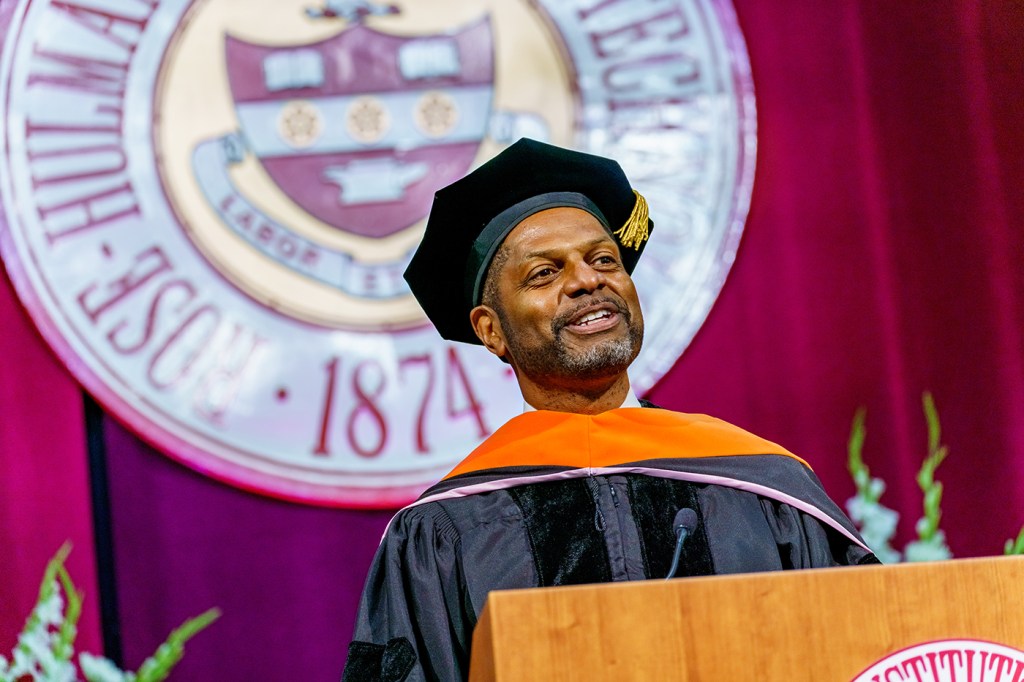‘We are better because we are diverse,’ Northeastern’s Karl Reid tells engineering graduates

In February 2021, Karl Reid was appointed Northeastern’s first chief inclusion officer, part of a university-wide effort to promote diversity and equity.
Prior to his arrival, he spent seven years as executive director of the National Society of Black Engineers. During that time, Reid visited Rose-Hulman Institute of Technology in Terre Haute, Indiana, helping the school develop strategies to recruit and retain underrepresented students.
On Saturday, Reid returned to Rose-Hulman, this time to receive an honorary doctorate in engineering and as the keynote speaker at the school’s 144th commencement.
His message was the same.
“We are better because we are diverse,” he told the graduates.
In addition to his role on Northeastern’s global campus, Reid also serves as director of the Engineering PLUS Alliance, a national effort to make engineering education more inclusive. He was previously the senior vice president for research, innovation and member college engagement at the United Negro College Fund.
On Saturday, he recounted his own undergraduate commencement from MIT, the importance of family in his life—he is the son and grandson of immigrants—and the influence of teachers on the lives of all young people.
America should be a country of opportunity for all, Reid told graduates.
“No one should be precluded from fulfilling their dreams and solving the world’s problems,” he said, “and contributing to making better worlds around them because of their race, because of their gender identity, because of their sexual orientation, or where they were born or grew up.”
Reid compared the exclusion of women and people of color—both proportionately missing from engineering fields—to a failed athletic team.
“We are leaving a lot of talent on the intellectual bench,” he said, “and we can’t remain silent.”
Reid urged Rose-Hulman graduates to use the skills they’ve learned to bring diversity to science, technology, engineering, and mathematics.
“As STEM and STEM-minded professionals, we’ve been trained to solve complex problems and discover novel solutions,” he said.
After all, that’s what engineers do, Reid said.
He said engineers can also apply their unique lens to even more complex problems, like social and environmental injustice.
“Our disciplined, creative approaches to problem solving and problem definition must be given to new and grander technical challenges,” he said, “like producing clean water and energy, producing more food, and securing cyberspace.”
Reid, a materials engineer, opened his address with a metaphor, comparing the graduates to metals that had been hardened by deliberately applying pressure to them.
“Although the first few deformations weaken the material, eventually the metal becomes stronger because of the pressure,” Reid said.
In this case, COVID-19 applied pressure to the graduates, the last class to experience a non-pandemic year of college.
“Like these metals, you too have been work-hardened,” he said.
For media inquiries, please contact media@northeastern.edu.





